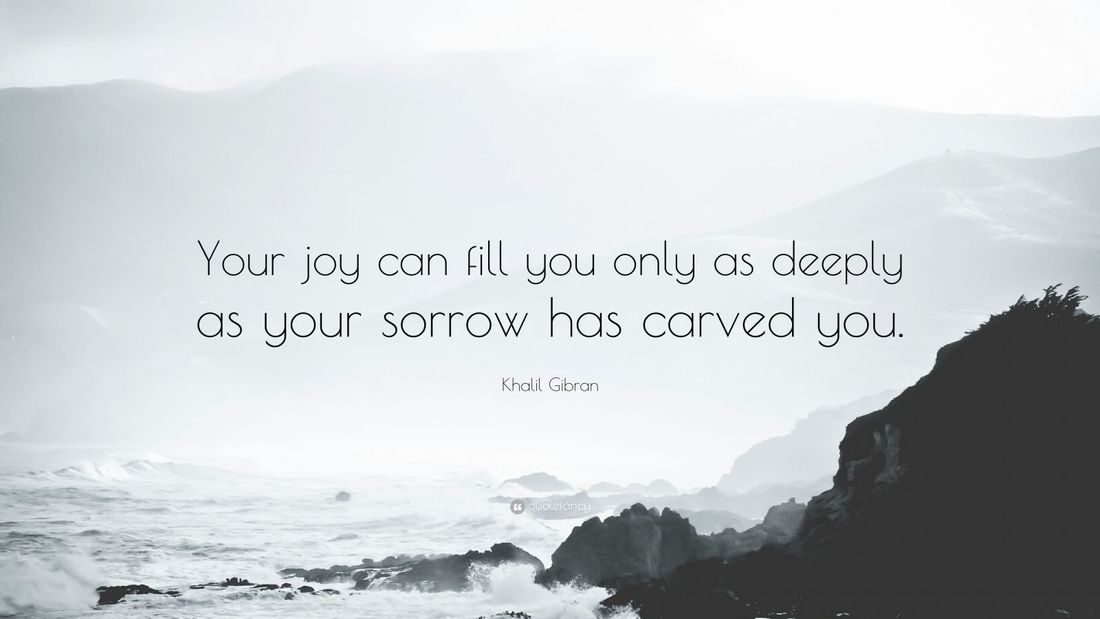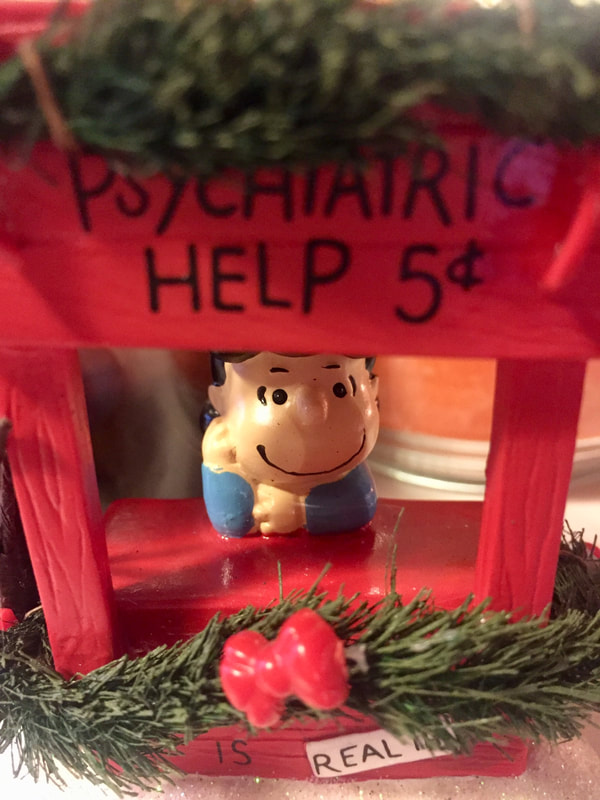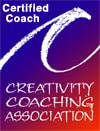|
Meaning Making
An important part of our life experience that makes an appearance in both art and therapy is meaning making. It is a human need to understand what experiences mean to us, to our lives, to our relationships, sense of self, and more. In fact, we find resolution, healing and purpose through making meaning and there are approaches to both art and therapy dedicated to this work. Meaning making can be hard, intensive, long term work. It can also be accomplished in smaller, more natural ways. Biologically, when we are making meaning we are creating new pathways in the brain, connecting information in new ways. Psychologically, we are developing our consciousness and worldview based on our life experiences. There has been a lot of work in art therapy, for example, on making artwork to help heal pain. You may have heard of adages of “doing something with the pain” in art therapy approaches. In a way, to artists, pain and hardship are romantic in a Shakespearean, tragic but beautiful sense. Logically, pain needs to exist in order for us to experience healing and happiness- one of the basic meaning-making steps used in therapy. The cognitive behavioral therapy paradigm focuses on the relationship between our thoughts, feelings and actions and how changing one impacts the other. Cognitive behavioral therapy would suggest that making meaning of experiences can change the way we think about them, and, in turn, positively impact our emotions about them and subsequent behaviors. What does this mean to you? We are all programmed to absorb the world in a certain way based on our life stories and genetic material. However, making meaning gives us power and freedom to choose what our life stories will mean to us and how we will use them in the future to predict outcomes, grow relationships, and choose our behavior. The idea of meaning making both in art and psychology allows you to create your future from your past and present. It empowers you to take healthy perspective and strength from your pain to more fully experience joy. Gain insight into your life and turn it into action. Come sit on my couch and make meaning of your life experiences. (C) 2017 Creatively, LLC Exciting news, creatives! I have two upcoming workshops available in January and February at Root Studio: The Art of Mindfulness and Creative Inspiration workshops- check them out and register at https://www.therootstudio.org/workshops . You can also find the links on the CreativelyLLC Facebook page (@creativelyllc) and the QR code links to the events on Instagram (@creativelyllc). Look for the newsletter and blog post this Friday with more about Creatively workshops!
Many creative people are also what you might call “nurturer-types” (though not all nurturers are creative and not all creatives are nurturers, its a frequent combination). Oftentimes your capacity to feel deeply also translates to empathy- the ability to feel deeply for others. As a result you may have chosen, been placed in, or both, nurturing roles in your relationships. This can be both good and bad. You are probably familiar with both positives and negatives if you have found yourself in nurturing roles. Nurturing to empathic creatives is fulfilling, feels emotionally satisfying, and caters to your natural strengths. It can also place you in a “nurturer trap.”
Something I see often in therapy and while working with creative people that are a nurturer-type, is that they are ensnared in a nurturer trap. If you are nurturing, what you will find or may have already found, is those that need nurturing will seek you out, and you may naturally seek them out as well. While this can be a beautiful symbiosis and go very well, this is not always the case. Oftentimes people that seek out nurturers are damaged, for lack of a better word, and will not honor the gifts they are receiving from you. They will drain you, take from you, can even manipulate and abuse you, without giving anything back. In these relationships you are drawn to them by your strong sense of empathy and nurture, and are left empty, hurt or even traumatized. You blame yourself for the relationship and the pain. You may even feel trapped. If you wind back the clock and look at the first few interactions in that relationship, likely what you will find, is you began it with good intentions to help, repair and strengthen. If you check off boxes one and two (yes, I am creative with a strong sense of empathy, and yes, I am very nurturing) chances are you will check off box three (yes, I have been caught in the nurturer trap) at some point in your life. In relationships of every kind, we need to protect ourselves (for more on this go back to the blog post about boundaries and setting your own rules). In order to create rules and boundaries to effectively protect ourselves we need information. You may identify from reading this today that you are a nurturer and susceptible to being trapped by those that would emotionally leech from you. Your next step is to take a look at your personal history and glean information from it you can use to protect yourself. Try the following activity (as always, in conjunction with your regular therapy sessions): List the major relationships you have had in your life. If you don’t like lists, choose another way to represent them. They don’t need to all be romantic. Include family, friends, coworkers, neighbors- any that stand out to you for whatever reason. If the list is long, top out at about 10 for the sake of the exercise. It is ok if your list is shorter than this, too. Next, under each relationship start listing qualities of them. What were the people like that you were in the relationship with? What was the relationship like? What adjectives describe experiences you had together? Again, if lists aren’t for you, create this representation in another way of your choosing. When you are done, go back through and circle anything that comes up more than once. You are looking for patterns. What can you identify as characteristics of people you have been in relationships with? What should you glom onto as healthy, and what might you use as a “red flag” in the future to avoid? Finally, remember that any type of nurturing (in healthy or unhealthy relationships) is giving of yourself. What you probably forget to do but need to do the most, is turn your gift inward and nurture yourself. Feeling sad, anxious, lonely? What would you do to help someone else who is feeling that way? Do it for yourself. Ask someone else to do it for you. Make sure to nurture yourself with as much (even better- more) time and attention than you do others. Being a nurturer is a gift and a calling to your creative personality and strong sense of empathy. Embrace it in a healthy way and you will feel fulfilled, build self esteem, and create meaning and purpose in your life. Come sit on my couch and let’s talk about how you can use your gift of nurturing to create your best life! (C) 2017 Creatively, LLC Adults need to Limit Screen Time, Too
Creatives: most of us have heard by now that pediatricians recommend limiting screen time in our little ones to help mold their growing minds. What you may or may not know or do is limit screen time for yourself, as well. I don’t have to tell you how prevalent glowing screens are in our daily lives- they are computers, tablets, phones, TVs and more- and we spend up to 75% of our waking hours looking at them. There are studies showing physiological effects of these activities such as posture and neck/back problems, eye strain, and more- I am here to tell you there is also a psychological impact! Here are some of the problems with “screen time,” that you may or may not know about: Screen time isn’t “real life.” You aren’t interacting physically with others (a psychological and sociological need) you aren’t physically accomplishing something (a self esteem need and creative need) you may or may not be being creative (a psychological need). Screen time isn’t “natural.” You are likely inside, seated. You are probably not outside, breathing fresh air, using your body, experiencing natural body rhythms of the day, touching, smelling, or tasting. The medical community recommends disengaging from screens at least 2 hours prior to going to bed as it interferes with the body’s natural ability to fall asleep. Screen time isn’t “mindful.” You aren’t grounded, experiencing or aware of time passing. You aren’t “living” as a human biological organism is meant to “live.” You are not participating in the present moment or engaging with your surroundings. Screen time isn’t “nurturing.” You are taking time away from self care, you are taking time away from other productive activities and goals like cooking, fitness, housework, and spending time with loved ones. Too often screen time is comparing out on social media, spying and pretending and watching other lives in entertainment- it is outward not inwardly focused, it is fleeting and not long lasting- you are not investing in yourself. Need more convincing? Try this exercise (on paper!): Spend five minutes on a screen- whether you are browsing the web, flicking through social media pages, watching TV or gaming- then stop and reflect on your experience. How did you feel during? How do you feel after? How FULFILLED and ENGAGED in your life do you feel? Give that last one a numerical value. Repeat the exercise doing something without a screen- take a walk, talk to a friend, cook something, meditate. How did you feel during? How do you feel after? How FULFILLED and ENGAGED in your life do you feel? Assign a numerical value. Compare your notes. What did you find out? Want to make reducing screen time a goal for 2018? Have fears, concerns or obstacles related to the amount of screen time in your life? Let’s talk about it. (C) 2017 Creatively, LLC |
get more from The Creativity CoursesLiking educational topics and knowing what's hot in creativity? Creatively has online courses, with an interactive creative community, coaching sessions and more in the Creativity Courses. Want these blogposts in a newsletter? Subscribe here, and get a free gift. Cindy Cisnerosis a Creativity Coach, Creative Therapist and Professional Artist in Sykesville, Maryland. She is an expert straddling the realms of arts, creativity research, psychology, therapy, and coaching. She provides Online Creativity Counseling in Maryland and Virginia, and Online Creativity Coaching throughout the USA, Canada and the UK tailored for the discerning, imaginative, artistic, and neurodiverse. The information provided in this blog is from my own clinical experiences and training. It is intended to supplement your clinical care. Never make major life changes before consulting with your treatment team. If you are unsure of your safety or wellbeing, do not hesitate to get help immediately.
Archives
July 2024
|
|
Concierge Therapy for Creatives in Maryland
Creativity Coaching Worldwide including the USA, UK and Canada |
Telephone |
|




 RSS Feed
RSS Feed

